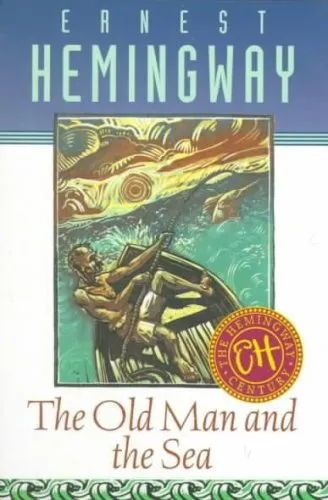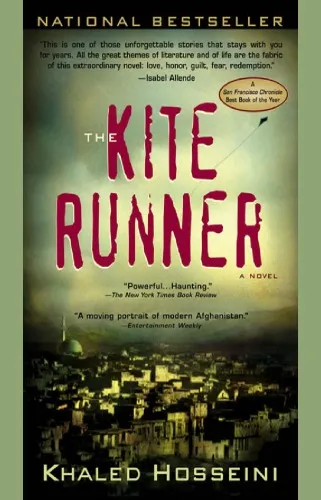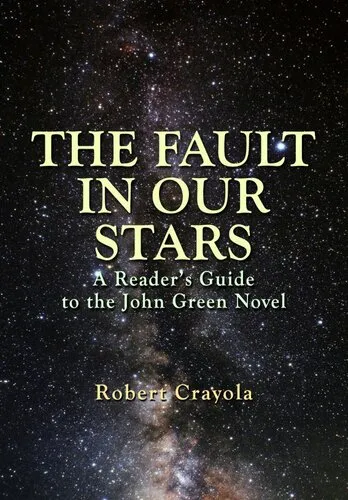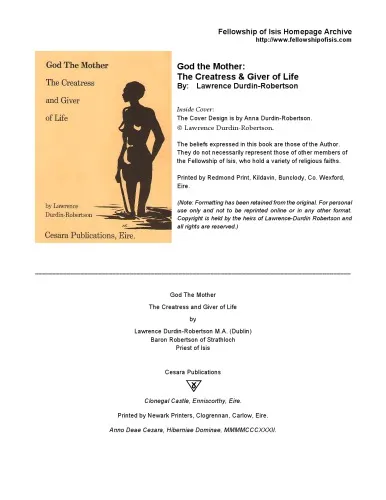The Old Man and The Sea
3.8
Reviews from our users

You Can Ask your questions from this book's AI after Login
Each download or ask from book AI costs 2 points. To earn more free points, please visit the Points Guide Page and complete some valuable actions.Related Refrences:
Introduction to 'The Old Man and The Sea'
Welcome to the timeless tale of endurance, courage, and the human spirit portrayed in Ernest Hemingway's classic novella, 'The Old Man and The Sea'. Published in 1952, this profound story chronicles an epic struggle between an aging fisherman and the largest catch of his life. Set against the backdrop of the cruel sea and infused with themes of resilience and dignity, Hemingway's work remains a vital piece of literature beloved by many.
Detailed Summary of the Book
The narrative focuses on Santiago, an old and seasoned Cuban fisherman who has not caught a fish in eighty-four days, earning him the reputation of being 'salao', the worst form of unluckiness. Undeterred, Santiago decides to venture deeper into the Gulf Stream, far beyond the confines of his normal fishing territory, seeking a change in fortune.
On the eighty-fifth day, Santiago's enduring faith bears fruit when he hooks an enormous marlin. What ensues is a grueling three-day battle characterized by diverse elements of courage, pain, and personal reflection. Throughout this struggle, Santiago's character is unveiled; he is relentless, wise, and brimming with an unbreakable spirit despite his physical limitations.
The marlin, a symbol of beauty and strength, fights valiantly, taking them further out into the sea. The struggle is not just physical but also spiritual and philosophical, making Santiago question his place in the universe and his self-worth. After an exhaustive effort, Santiago finally captures the marlin, lashing it to the side of his skiff. However, his triumph is tainted by the imminent threat of sharks, predators that attack the marlin's carcass, leaving Santiago nothing but a skeletal remains and a tale of indomitable will.
Key Takeaways
Hemingway’s work speaks volumes on the themes of perseverance, dignity, and existential struggle. Santiago's journey is an allegory of the human condition, stripped bare, highlighting our enduring spirit despite adverse circumstances.
- Resilience and Determination: Santiago exemplifies unyielding perseverance, embodying the spirit of never giving up.
- Pride and Personal Redemption: The struggle is intricately tied to Santiago's sense of pride and his quest for personal redemption.
- Nature and the Human Spirit: The ocean, at once a source of sustenance and a formidable adversary, frames the profound relationship between humans and nature.
Famous Quotes from the Book
Hemingway's sparse yet powerful prose is a hallmark of this novel, with several passages and quotes leaving a lasting impression on readers. Here are a few notable ones:
"But man is not made for defeat. A man can be destroyed but not defeated."
"It is better to be lucky. But I would rather be exact. Then when luck comes you are ready."
Why This Book Matters
'The Old Man and The Sea' remains a significant work in literary history, not only for its gripping narrative but also for its profound exploration of universal themes. Hemingway’s masterpiece is celebrated for its ability to transform a simple story into a rich, multilayered experience, inviting readers to ponder deeply on courage, persistence, and the essence of human existence.
The novella received the Pulitzer Prize for Fiction in 1953 and contributed to Hemingway being awarded the Nobel Prize in Literature in 1954. Its influence permeates various facets of storytelling, reaffirming that even the simplest of tales can resonate with complex human emotions and societal truths. 'The Old Man and The Sea' challenges readers, urging them to reflect on their own life struggles while emphasizing the indomitable human spirit.
Free Direct Download
You Can Download this book after Login
Accessing books through legal platforms and public libraries not only supports the rights of authors and publishers but also contributes to the sustainability of reading culture. Before downloading, please take a moment to consider these options.
Find this book on other platforms:
WorldCat helps you find books in libraries worldwide.
See ratings, reviews, and discussions on Goodreads.
Find and buy rare or used books on AbeBooks.
1540
بازدید3.8
امتیاز0
نظر98%
رضایتReviews:
3.8
Based on 0 users review
Questions & Answers
Ask questions about this book or help others by answering
No questions yet. Be the first to ask!















